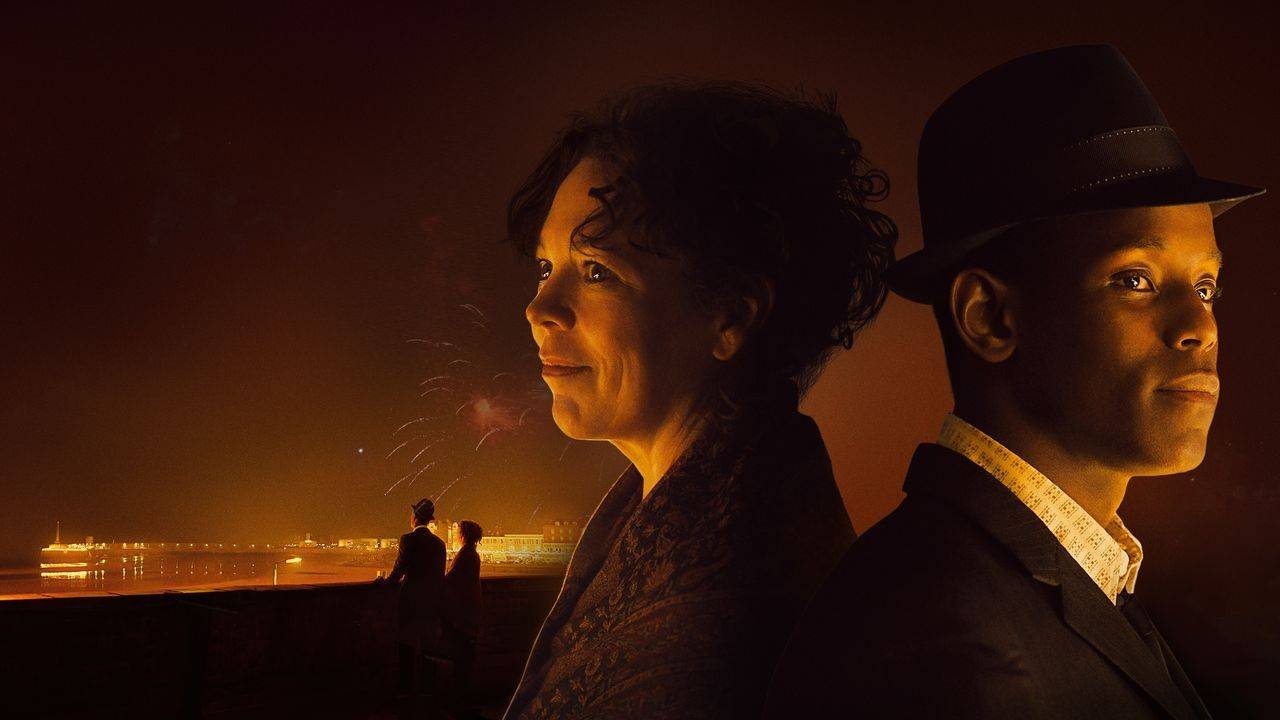Empire of Light Review
Empire of Light, written and directed by Sam Mendes, gives a brief glimpse into the life of seaside cinema duty manager Hilary (Olivia Colman) and her budding relationship with new employee Stephen (Michael Ward). The key word here being ‘brief’, with many of the intricacies and much of the delicate nature of this films’ themes brushed over with little flair.
In 1980’s southern Britain, Hilary, artfully depicted by Oscar winner Olivia Colman, is a relatively lonely, ageing cinema duty manager yearning for sparks of human connection. With flickers of shameful affection from her boss Donald (Colin Firth), she goes about her days with dutiful routine. Getting ready for work, taking her medication, opening the cinema, and preparing Donald’s office just the way he likes it. That is until new starter Stephen (Michael Ward), young in age and the only person of colour, comes into the story like a breath of fresh air.
Hilary and Stepehen start to spend more time together and a wholly unbelievable romance spatters across the rest of the film. Despite the distinct age difference and lack of any common threads the pursuit of this relationship leads to incoherent joy in Colman’s character. In a classic and overdone fashion the mentally ill character stops taking their medication because ‘they’re happy now’ and this is where cracks in Hilary’s mental health start to show.
The depiction of racism and mental health is somehow both verbose and flat at the same time. Under Margaret Thatcher’s reign, Hilary is somehow discovering racism for the first time through Stephen’s experience, during the peak of 80’s English White-nationlism. Unclear if this was meant to be relatable or shocking, the offhanded name calling and eventual violence produce neither connection. Hilary’s unnamed mental illness feels like it was written in the 80’s, with lack of nuance or understanding of the complexity of the human condition. Are we just meant to think Hilary is a crazy old lady and there’s no hope for her?
The writing creates a strangely impersonal take on an intimate film, with an oddly unbelievable and disengaging love story. Then there’s the relatively small role for Colin Firth, which lacked considerable depth and direction. The key saviors of the film are the performance by our two protagonists, and even so this credit won’t outshine any of their others.
The undertone to this story is a movie about the movies, depicting some of the true art of attending the cinema and everything that goes on behind it; capturing a glimpse of the beauty of being engrossed by film. If done right it could have been a true love letter to the cinema. And while it undoubtedly does not succeed in that, the set design of the cinema was breathtaking - from the velvet clad cinema down to the snack bar, the crew create an air of historic glamour that has since fallen to the wayside.
All the right things were there for this to be a great movie, with the potential to drive poignant stories of love, loss, ageism, sexism and the complexities of the mind. Perhaps it was trying to do too many things at once and in the end didn’t really touch on any of them properly.
In short, this movie doesn’t do anything that others haven’t done before it, and done better.


